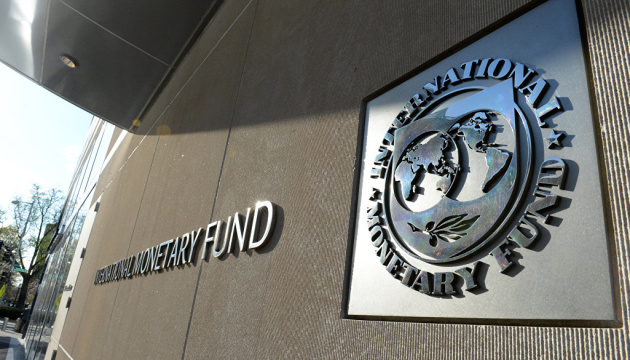
IMF allocates another $1.1B tranche for Ukraine
That’s according to an IMF statement regarding the completion of the fifth review of the EFF program for Ukraine, reports Ukrinform.
"The IMF Board today completed the Fifth Review of the extended arrangement under the Extended Fund Facility (EFF) for Ukraine, enabling a disbursement of about US$1.1 billion (SDR 834.9 million) to Ukraine, which will be channeled for budget support," the press release states.
IMF Managing Director Kristalina Georgieva, following the Executive Board discussion on Ukraine, stated: “Russia’s war in Ukraine continues to bring a devastating social and economic toll on Ukraine. Despite the war, macroeconomic and financial stability is being preserved through skillful policymaking by the Ukrainian authorities as well as substantial external support. The economy has remained resilient, despite significant damage to the energy infrastructure, reflecting the continued adaptability of households and firms.”
She noted that Ukraine’s performance and commitment under the program remains strong as all quantitative performance criteria for end-June were met, and those for end-September are expected to have been met.
The program remains fully financed with a cumulative external financing envelope of $151 billion in the baseline and $187 billion in the downside over the 4-year program period, including with new commitments from the Extraordinary Revenue Acceleration Loans for Ukraine (ERA) initiative.
“Looking ahead, the recovery is expected to slow amid headwinds from the impact of the attacks on energy infrastructure and the continuing war, while risks to the outlook remain exceptionally high. Preparedness is necessary to enable appropriate policy action should risks materialize,” the statement reads.
Ukraine’s financing needs remain large, driven by the continuing war, Georgieva admitted, adding that timely and predictable external support—on terms consistent with debt sustainability—is essential to closing financing gaps and safeguarding stability.
At the same time, she believes decisive domestic revenue mobilization is critical for Ukraine to meet elevated spending needs, respond to shocks, and restore fiscal sustainability, which will require further tax policy measures as well as efforts to improve compliance and combat evasion, as envisioned under the National Revenue Strategy.
Further strengthening medium-term budgeting, fiscal risk frameworks and transparency, and public investment management should advance in support of these goals, the report reads.
The Eurobond exchange in August was an important milestone in the authorities’ strategy to restore debt sustainability, according to the IMF, while efforts to conclude the remaining steps in line with the authorities’ strategy and the program’s debt sustainability objectives should continue.
As for the foreign exchange rate, the IMF said its continued flexibility under the managed exchange rate regime will help strengthen the resilience of the economy to external shocks.
“The recent uptick in inflation suggests limited room for further easing in the near term, though inflation remains well-anchored, and the FX cash market continues to show stability,” reads the press release. “A state-dependent and gradual approach to the easing of FX controls remains essential to safeguard FX reserves.”
The authorities’ efforts to avoid monetary financing should continue, the IMF believes.
Noting stability of the financial sector, the IMF says efforts should continue to strengthen bank resolution and supervision, governance, and contingency planning in view of risks to the outlook.
“Continuing the reform momentum in anticorruption and governance, including ensuring the effectiveness of anticorruption institutions and strengthening governance in the energy sector, remain essential to help contain fiscal risks, secure donor confidence and enhance growth, which would also support Ukraine’s path to EU accession,” the report concludes.
As Ukrinform reported earlier, Ukraine and the IMF reached an agreement on the fourth review of the EFF in late May, which allowed the country to receive another tranche of about $2.2 billion in early June.




